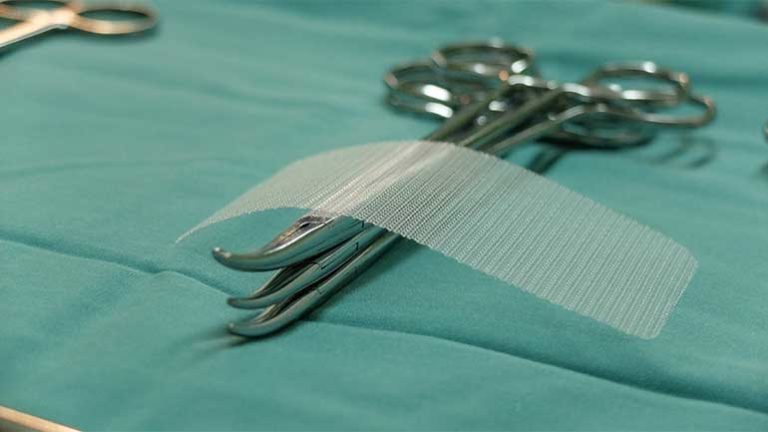Surgical Hernia Mesh Devices Pose Danger to Many

Unfortunately, several medical device manufacturers put surgical hernia mesh patches on the market that can cause complications, including having the mesh adhere to the intestines, liver, colon, kidney, bowel, bladder, rectum, spermatic cord or other internal organs. In addition, degradation of the mesh can leave edges which can perforate, puncture or rupture the bowel or another organ. Abdominal infection and sepsis, fistula formation, migration of the patch to some other part of the body, bowel or intestinal obstruction, and rejection of the mesh by the body’s defenses are all complications that can arise from defective hernia mesh.
Which Brands are Culprits?
Kugel Composix, a hernia mesh patch manufactured by Davol, a subsidiary of C.R. Bard, caused so many dangerous complications that the manufacturer was forced to recall the mesh in 2005. From 2005 to 2007, Kugel issued three different recalls of their hernia mesh products, and between 2006 and 2007, the U.S. Food and Drug Administration (FDA) issued a Class 1 Recall, ordering eight different Kugel models off the market.
Proceed, a surgical mesh product made of lightweight polypropylene and manufactured by Ethicon, a subsidiary of Johnson & Johnson, was recalled by the company in 2010 and 2014, though the Ventral Patch remains on the market. Allegations against the manufacturer state that Ethicon knew polypropylene was unsuitable for use in the human body, so it added a protective laminate layer to the mesh. Unfortunately for many patients, the laminate was made of a component known as oxidized regenerated cellulose (ORC) which degrades when exposed to radiation.
Physiomesh, a composite mesh also manufactured by Ethicon, experienced a failure rate of 20 percent, remarkably high for a medical device. It was pulled from the market in 2016 after several studies showed its mesh caused complications, including recurrent hernias that required patients to undergo additional surgery.
C-Qur, a hernia mesh patch manufactured by Atrium Medical, now owned by the Maquet Getinge Group, has a higher infection rate than other surgical mesh products, according to a study conducted by the British Journal of Surgery in 2009. The FDA issued a warning to Atrium in 2012 after repeated manufacturing and sterilization violations were discovered at its New Hampshire plant. In 2013, the FDA, together with the Department of Justice, sought an injunction against Atrium to stop production of its C-Qur products until the manufacturing issues were corrected. That same year, Atrium announced recalls of more than 145,000 C-Qur units, claiming that excessive humidity inside the packaging caused the mesh coating to stick to its inner handling sleeve.
What Else Can Be Done?
Filing a lawsuit sends a signal to medical device manufacturers that their disregard for the safety and efficacy of their products, at the expense of you or your loved one’s health and well-being, will not be tolerated. No matter where you live in the United States, if you have experienced hernia mesh complications, you can find out if you qualify and get started online or call 866-723-1890 for a confidential consultation with an expert hernia mesh lawsuit attorney at Baron & Budd.
